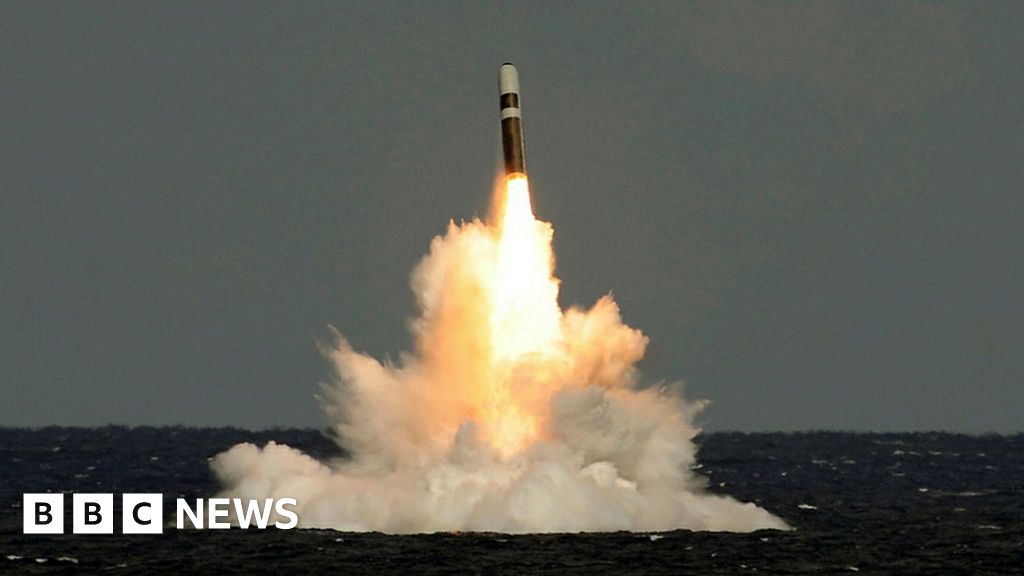- Change Makers
- Posts
- £17 million down the drain and JFK's promise
£17 million down the drain and JFK's promise
🌅 Today’s Topics
Good Morning, today we’re delving into:
The UK’s Nuclear Missile Test Failure
A Private Company Made It to the Moon
Chart: The Proliferation of Private Jet Travel
Have feedback for us? Hit reply - we’d love to hear from you
Missile Failures
What happened?
Earlier last week, a Royal Navy submarine took the very expensive step of test-firing one of its nuclear missiles and for the second time in 8 years, it failed. That’s 2 failures from 2 launches in 8 years; not a great look for the Navy or the UK Nuclear deterrence.
Why does this matter?
Nuclear weapons are shrouded in mystery, which is no accident. Everyone knows about the nuclear weapons (Fat Man and Little Boy - yes that’s their real names) that were dropped from a plane on Nagasaki and Hiroshima to end the Second World War, but what is less known is how they are being deployed today.
‘If a nuclear bomb has to be used, then it has failed,’ is a common expression around nuclear weapons. The point is that the purpose of having a nuclear bomb is to show your enemies that the cost of attacking you is so high there is no way they can win, or what is called a nuclear deterrent.
Now what is really important here is that for this deterrent to work your enemies have to believe two things: 1/ that you will actually use it if provoked (otherwise you may as well not have it) and 2/ you have the facilities to actually deeply it.
And this is where the UK currently has a big problem.
Britain’s Issue
Every country has adopted different tactics to ensure that they can deploy their weapons. The US, being their over-the-top selves, have opted for literally every option: bombs from planes, missiles from submarines and missiles from land (ICBMs).
The UK meanwhile has just opted for missiles from submarines but done in a pretty special way - primarily to save costs.
The Royal Navy has 4 Vanguard-class submarines which all carry nuclear missiles - called Tridents - with the premise being that at least one of them will always be ‘on patrol’ somewhere in the world, prepared to counter-strike His Majesties enemies wherever that could be (Russia, Iran, North Korea, China?).
The whole point is that no one knows where this submarine is, so even if an enemy managed to land their first blow on the UK mainland, they could never take out this submarine and thus could never stop a returning nuclear warhead.

This is called ‘constant-at-sea-deterrence’ – CASD for short.
So this recent failure is actually a pretty big deal for the world of state security. It gives a massive signal to the UK enemies that the UK cannot retaliate in a nuclear capacity - literally defeating the point of having nuclear weapons at all.
What does this say about the future?
Nuclear weapons are one of those things that no one wants to need - but they provide a level of security nothing else can. They are a textbook definition of a necessary evil.
In an increasingly unstable world, Britain’s future as a nuclear-holding, prestigious military force seems increasingly needed, but decreasingly realistic.
Becoming Interplanetary
What happened?
For the first time, a privately manufactured spacecraft has landed on the surface of the moon. Intuitive Machines, a Texas-based space company, landed their lunar module on the surface of the moon on Thursday.

What does this mean?
The United States is leading a charge on a new space race. However, unlike the last space race, this one is led by private organisations looking to bring technological innovation to the stars.
In the 1960s, the US needed to beat The Soviet Union to the moon and so they launched the Apollo program. President Kennedy famously said, “We choose to go to the moon in this decade and do the other things, not because they are easy, but because they are hard." They spent $250 billion on the Apollo program (the GDP of New Zealand) and won the race putting Neil Armstrong and Buzz Aldrin on the moon.
Unfortunately, in 2024, the US government does not have the budgetary or political willpower to allow NASA to take on this project on its own. This means NASA is partnering with companies like SpaceX, Intuitive Machines, Varda Space (who we wrote about in this newsletter) and other companies, to pioneer this next wave.
Whether you agree with this approach or not, it is the way the world is heading.
Why does this matter?
Private companies will build a Space economy that looks vastly different from that of the 20th century.
Firstly, private companies have a different set of incentives not to screw things up. Bureaucratic government agencies have a history of going over budget and having serious failures. In the 1990s, NASA launched the Challenger space shuttle, and 90 seconds after launch it exploded. This was a result of political and internal pressure to launch a rocket that shouldn’t have been launched.

If this happened to SpaceX, they would face the collapse of the organisation as customers pull out of launching on an unsafe Falcon 9. Falcon 9 has now launched and landed over 300 times without a catastrophic failure - something no government has ever done.
Not only that but capitalism drives competitive innovations; free markets have meant SpaceX is able to build better, safer and more reusable rockets.
Some unanswered questions I have are about why are we not seeing this innovation elsewhere. How can Europe create a similar space economy? What are the prerequisites needed for this to happen? Only time will tell.
Chart of the week:
The number of private airports has grown exponentially in the last 40 years

